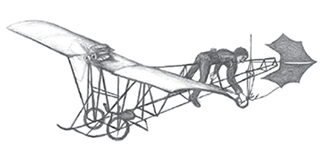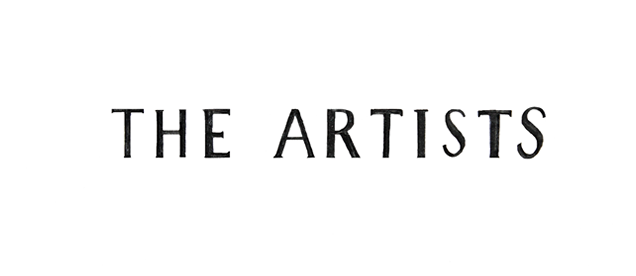Ever Tried. Ever Failed.
They were troubling times. A deep seam of discontent that seemed to split the country from itself. There were people too scared to lift their eyes and greet the person walking towards them. There were others who didn't open their curtains because they couldn't see the point.
Some said it was money – which kept losing its way; which kept on falling; which made people nervous and angry and in need of someone to blame. Others said it was historical, environmental, global – mills had stopped their milling; factories had stopped their making; towns had lost their meaning, and nobody was quite sure about what to value or who they might be.
There was still joy. People fell in love. Babies were born. Children tasted ice-cream for the first time. In the evenings the sun spilt its colours across the clouds, and then each morning washed the world in pastel pinks and blues. Seeds burst their casings and pushed green shoots up through dark soil into the light. There was still joy.
When the woman arrived, people noticed – it was a small town; people tended to leave or talk about leaving, but few moved in from elsewhere. She wasn't special looking – medium height, short hair, small features in a pale face. They talked about how old she might be – thirty, forty, fifty, it was hard to say. They wondered why she was there and what it was she wanted from them. She made them nervous, but they did not say this to each other.
She rented an empty shop on the high street, which had stumbled and sunk the past few years – the grocers gone, the butchers gone, the clothes shop that had been there for three generations gone. The shop she took used to be a florists. It was dirty, empty, damp, but some mornings, when she unlocked the door and walked inside, she caught the smell of roses, lilies, fuchsia, and the sharp green of freshly cut stems.
During the day she would prop the door open, as though to say come in, you're welcome, and she set about cleaning. Windows first. Then the floor, sweeping the rubbish into big black bags and then scrubbing and mopping and polishing until the lino remembered it used to be a beautiful duck egg blue. No one came inside, but some glanced through the windows and then told the others what they saw. It made no sense, they said, she was naïve, stupid even. She had no idea how things worked around there. She was in for a shock.
One day, the woman put an A-frame blackboard outside on the street. In beautiful white lettering she had written: Ever tried. Ever failed. No matter. Try again. Fail again. Fail better. (Samuel Beckett).
Well. Everybody in the town read it and nobody knew what to think. But they agreed that this woman, with her polished windows and duck egg floor, could have nothing to tell them about failure.
The next week the blackboard had been wiped clean and the woman had written, in red chalk this time: Discouragement and failure are two of the surest stepping stones to success (Dale Carnegie).
Well. Who the hell did she think she was?
The windows were clean. The floor was polished. The woman painted the walls a rich buttery yellow and started to build a table out of bits of wood she'd found in the back yard. She bought a kettle and six purple mugs and if anyone came in – which they didn't – she would have offered them a cup of tea.
The following week, the board read: Only those who dare to fail greatly can ever achieve greatly (Robert F. Kennedy).
The woman sat at her table on the florist's old plastic chair, with a pile of paper and a thick black pencil, and started to draw. Every time she finished a picture she pinned it to the newly painted wall at the back of the shop. The people who walked past and glanced in couldn't quite make out what the pictures were of. Some said they were obscene. Some said they were of a town far from this one, and badly done. Others said they were nothing but lines without meaning.
The woman kept on drawing and pinning the finished pictures to the back wall, and one morning she cleaned the blackboard and wrote: Art Exhibition. Free. All Welcome, each letter in a different colour.
Well.
Art?
No. The people shook their heads. Absolutely not. Free or not free, there was no need for art in their town. Art was for rich people. Art was for people who had gone to university and could stand in front of a splash of paint and think of something to say about it. Art was definitely not for them.
There were others, artists themselves, who looked at the blackboard and the shop and felt something they couldn’t quite put their finger on – excitement maybe, or envy, anger or anticipation.
The woman sat at her table, drinking tea from a purple mug, and waited. She knew that her pictures were good. She knew that people were curious. She knew that art was not just for rich people, and that artists needed to see as well as show. And so she waited.
The first person to cross the threshold was a schoolboy, dared by his friends. He was so pumped full of his own bravery it took him a while to notice that the pictures were of his town. The factory on the edge of town with its broken windows and boarded up doors; the front of a terraced house; his school playground. Crappy places, really, he told himself, and yet they looked nice drawn in bold black lines on creamy paper. There was a tree growing out of one of the factory windows; the terraced house had pots of flowering geraniums in the front yard; and she had drawn the playground from above so that the clusters of kids looked like constellations across the tarmac.
And then there was a picture of him, dressed like a prince, with a rich embroidered coat and a crown perched on his head. He was standing at the top of Crook Street, looking out over the town as if he owned it. He looked from the picture to the woman, who still sat at the table with her hands cupped around her mug.
'Would you rather I drew you differently?' she asked.
The boy didn't know what to say.
'Or you can draw it if you like.' She gestured to the pile of paper and a box of new pencils. 'I can help if you want me to.'
The boy walked slowly to the door, as though trying not to provoke a dangerous animal, then slipped back onto the street and ran to where his friends waited. He told them the pictures were of the town and they rolled their eyes and laughed and started to move off towards the football field. He did not tell them about the picture of him, but he couldn't get the thought of it out of his mind.
The woman stayed sitting at the table. Waiting.
The second person to come in was the woman who worked in the nail bar at the end of the street. She had liked art at school, had loved how it focused her attention so completely the rest of the world seemed to fade and quieten around her; loved how she could translate what she saw into something both like it and at the same time different; loved how capturing something on paper meant she could keep a version of it for herself, even when the thing she had drawn – sky, apple, cheese-plant – had changed, or gone. She hadn't painted a picture in years.
She walked into the shop with her head down, passed the woman at the table and went straight to the pictures. They were of her town. She stared at them. The post office. The tree outside the B&B. The curve of the road down towards the river. Tired, nothing-special places, and yet in the pictures they looked beautiful. The sky reflected in the post office window; a bird sitting in the tree, its head cocked as if asking a question; a boy riding his bike along the road, feet off the pedals, face lit up with joy.
And then there was a picture of her, standing at an easel, her hair tied back from her face, her shirt smeared with paint, a brush in one hand.
When she turned back to the woman at the table, there was steam twisting up from two cups of tea. She sat down, and the woman handed her a piece of a paper and a pencil, newly sharpened. The woman who worked in the nail bar, and had barely thought about art since leaving school, picked up the pencil and started to draw. She drew the woman opposite her. She drew the shop, with its buttery walls and duck egg floor, its large clean windows and the pictures of her town pinned to the back wall. She drew the blackboard with its multicoloured words: Art Exhibition. Free. All Welcome. She drew the people who didn’t think art was for them, and the artists who still weren’t sure what they thought about the woman and whatever she was up to. She drew the street outside and the people walking along it, the nail bar and the newsagents, the pound shops and the pub with its tattered sign and heavy plastic ashtrays. She drew the road down to the river and the road up into the hills.
When she had finished, the woman opposite handed her two metal tacks and a hammer. The woman who worked in the nail bar, and had just remembered what it felt like to draw, chose a place on the wall, right next to the window, and pinned up the picture so that anyone walking past could look in and see.





 Back to themes
Back to themes



